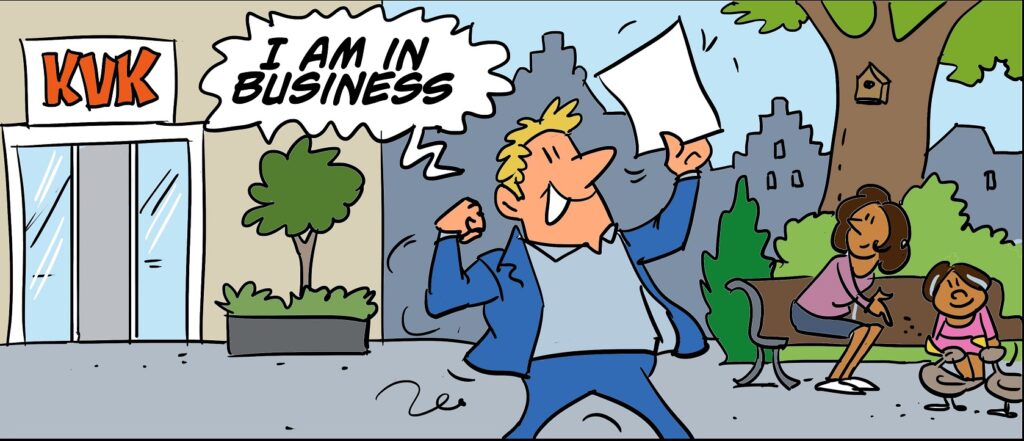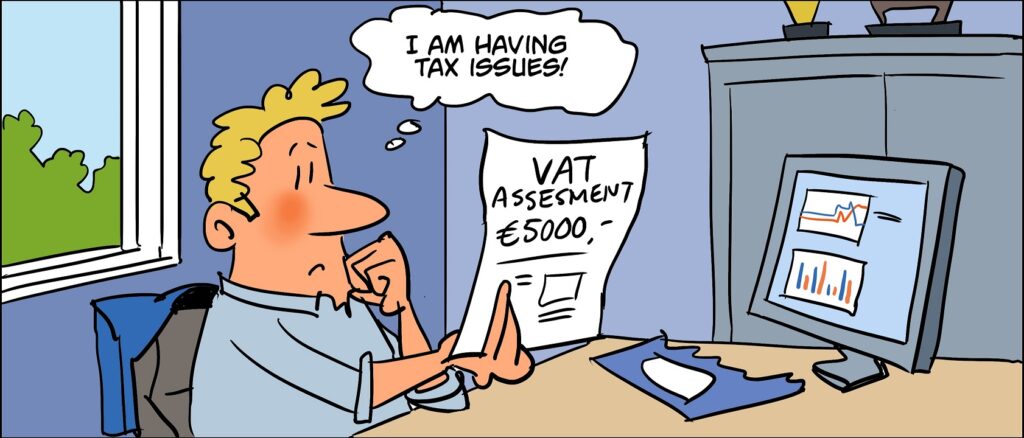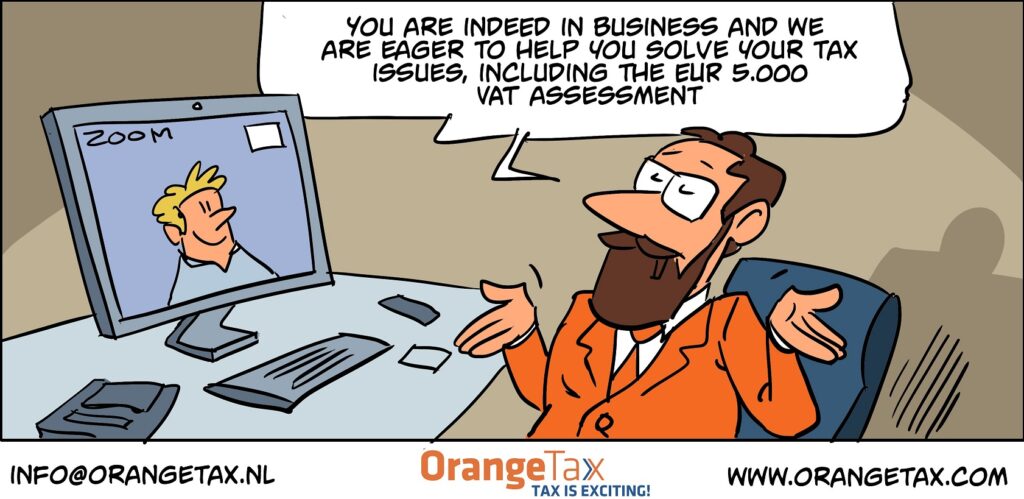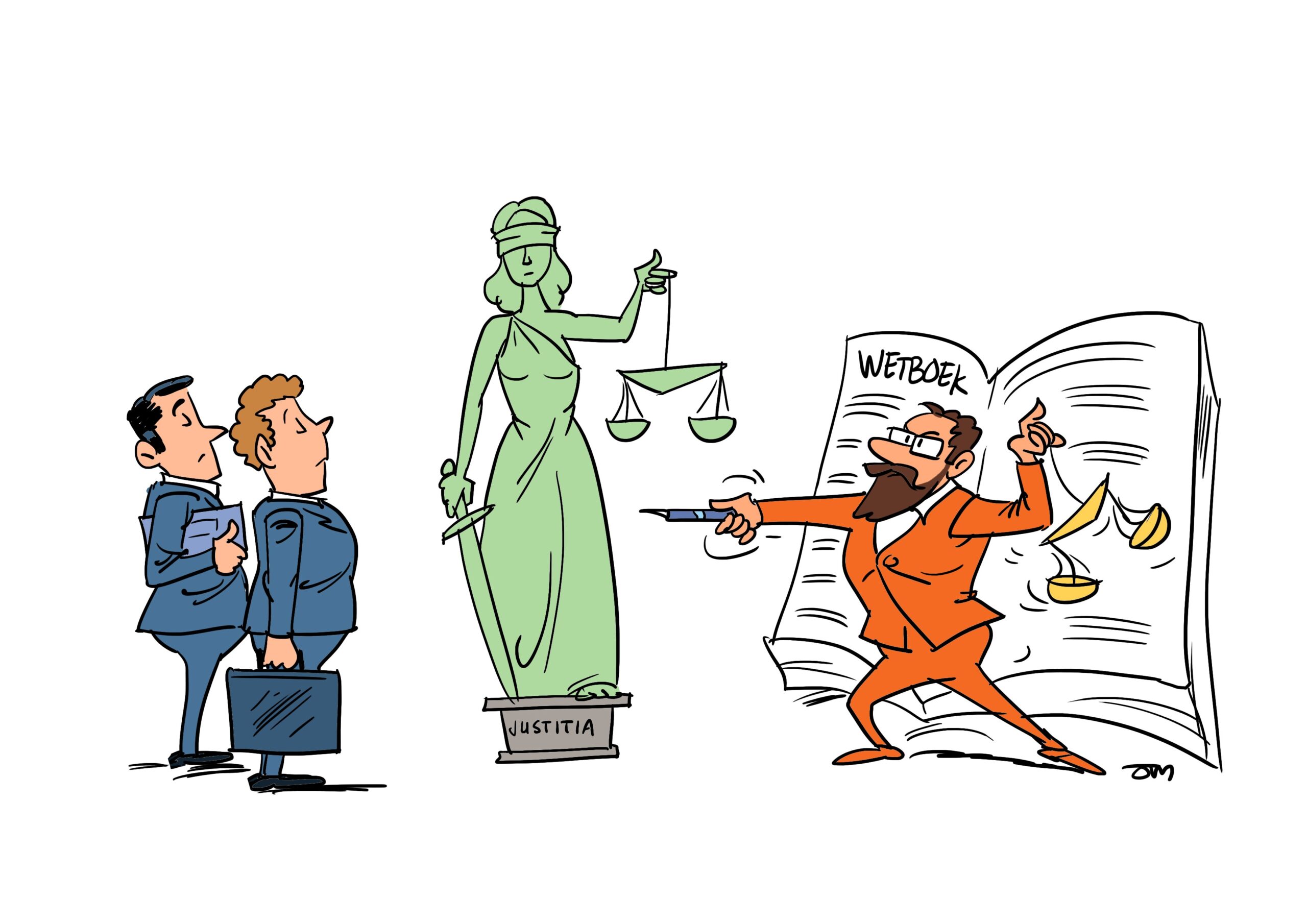One client is no client in 2025 is the standpoint of the Dutch tax office. Rules will be enforced from coming January. What does this imply?
One client is no client
One client is often how you start your business. Not many start with multiple clients their new business. If you are a starting business and you start with one client, but you can show proof you are active finding more clients, then this is not an article for you.
This article is for the ZZP type of companies that for instance work in the hospital, the tax office (indeed), other large companies where you assume only employees are employed. This ZZP type of company spends basically the full working week for that one client. You can recognize these type of companies by an identical invoice issued every month.
An identical invoice is an invoice with the same amount every month. Whether the month has 20 or 21 working days, or whether a public holiday took place during that month, the amount is the same. Clearly that is not an hourly charged rate. There is a monthly rate charged, looks like a salary.

Warning Dutch tax office
The tax office announced that from January 1, 2025 onwards:
- Audits will involve corrections, assessments and penalties. No more warnings;
- Focus is on deemed employment and the corresponding wage tax being levied;
- Situations audited existing before January 1, 2025 will only result in penalties and charges if it is clear the rules were deliberately ignored;
- The tax office will take into account issuing assessment and penalties when the organization proofs they are working on the change away from deemed employment;
- No longer the model agreement of non-employment are supported. Existing accepted models are till the end date respected;
- New applications for model agreements of non employment are no longer processed.

What is deemed employment
Deemed employment is applicable when a person works for one client, during the same office hours, doing more or less the same work as the employees. The difference is that this person is self-employed, or ZZP, hence no salary is paid. The moment no salary is paid, no wage tax is collected and no social premiums.
The moment the contract for this service is examined, it is basically an employment contract with a different title. Sometimes even is negotiated a holiday period, sick pay, 8% bonus pay (looks like 8% holiday pay).
What is the problem working as ZZP or as an employee?
The income tax rates for the employee and the ZZP are identical. The problem is in the social premium contribution. The employer pays for the employee the unemployment benefit and the disability benefit. The moment the employee is regarded an ZZP entrepreneur, these premiums are not paid. That is an erosion of the social base, that is the true problem.
Besides the social premiums, the ‘ entrepreneur’ can deduct certain ‘company’ costs the employee cannot. Plus the entrepreneur can apply the entrepreneurs deduction, the starting entrepreneurs deduction and the small business discount.
What is the risk of the client?
The client is regarded the employer for the Dutch tax office. The tax office will see the payments to the ‘ entrepreneur’ as net salary payments, including the VAT paid. The net amount will be grossed up, wage tax and social premiums will be charged. The penalty on top of that amount is likely to be between 25% and 50%. The tax office goes back a maximum of five years. Interest is part of the assessment.
What is the risk of the ‘entrepreneur’?
The entpreneurs is denied the entrepreneurship. The Value Added Tax paid to the Dutch tax office over the turnover, which is now salary, is not refunded. The VAT act states that if VAT is charged, even if incorrectly charged, needs to be paid to the Dutch tax office.

What is the problem with becoming a true employee?
If you make a true comparison between employment and self employment, everything needs to be taken into account. Also the premium for the disability insurance. The moment everything is taken into account and you are the one client type of business, there is nearly no difference between being an employee or self employed.
Employment also provides the possibility for pension build up, pregnancy leave and what have you as benefits for employees.
Tax is exciting
We think tax is exciting. We are very excited about new companies starting with their first client. The deemed employment type of companies have always been at risk. As you can read above, the risk is for the client, as substantial risk. Looking at the chance to come clean offered by the Dutch tax office, we recommend the one client is not client entrepreneurs to take this chance to employment.





